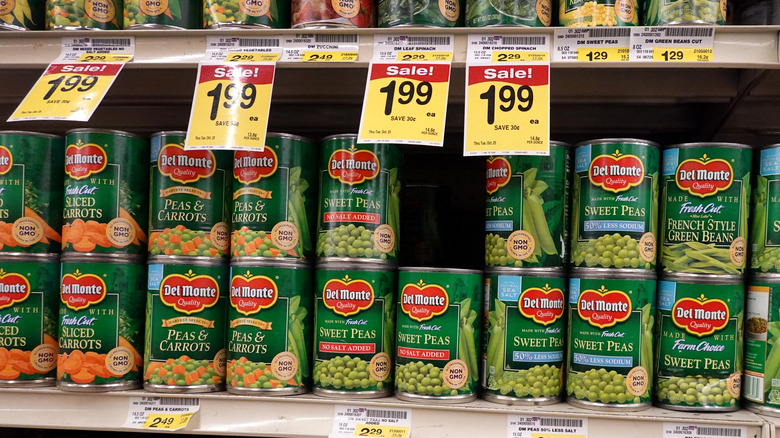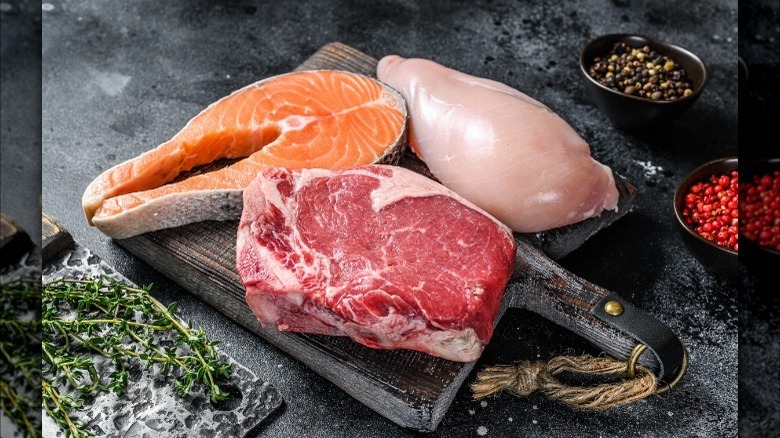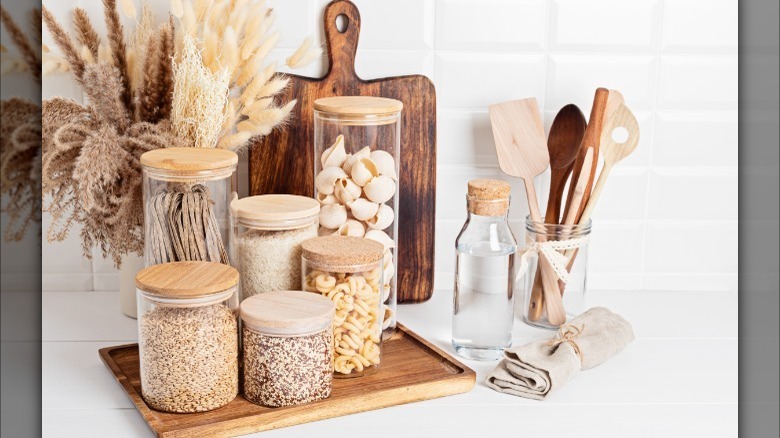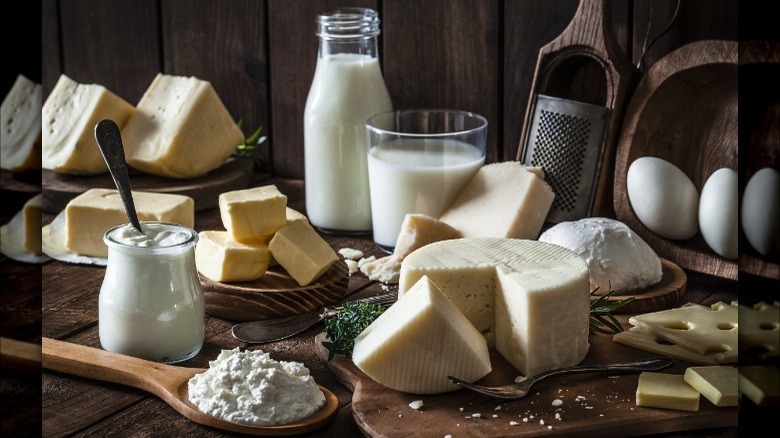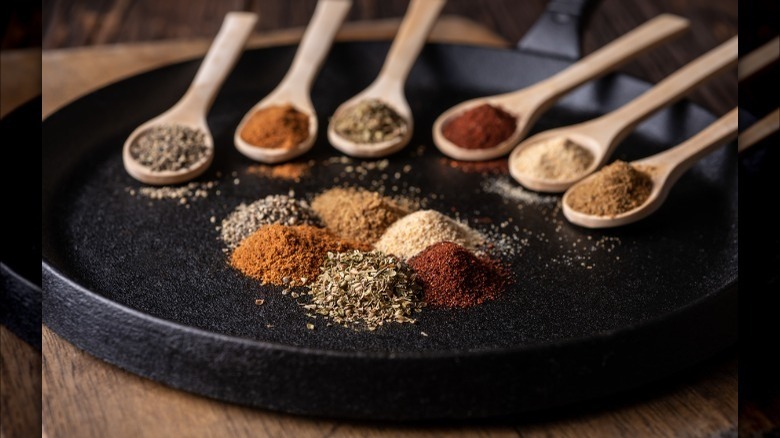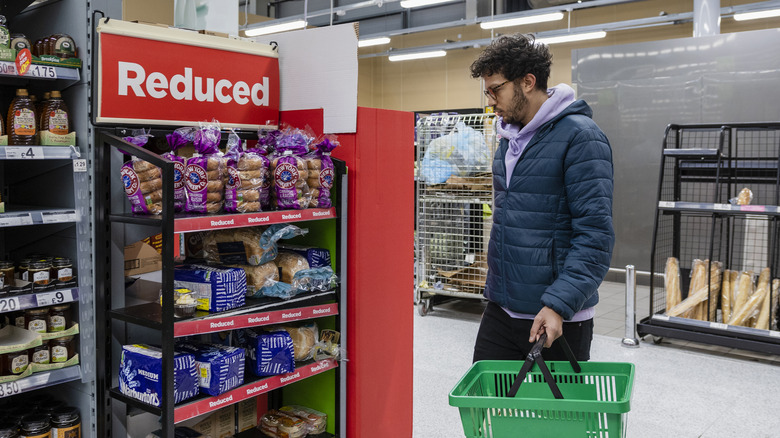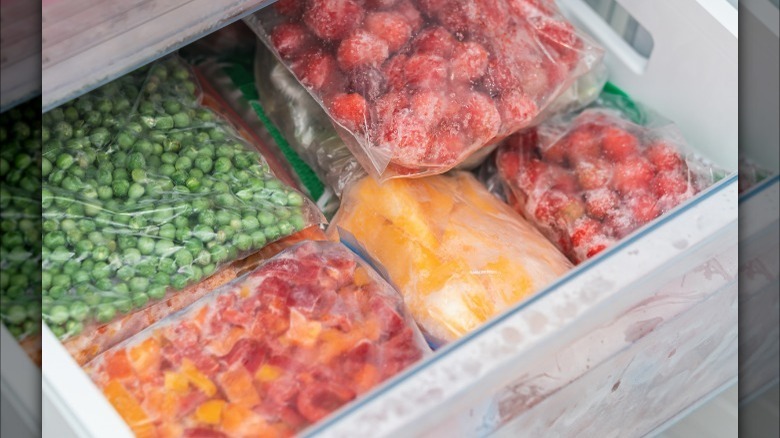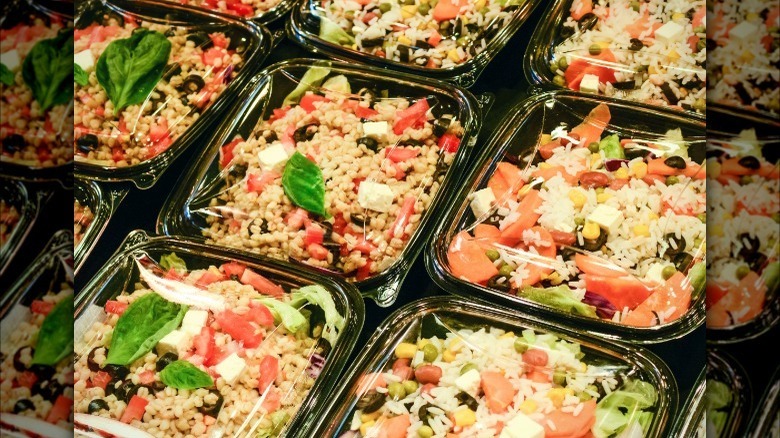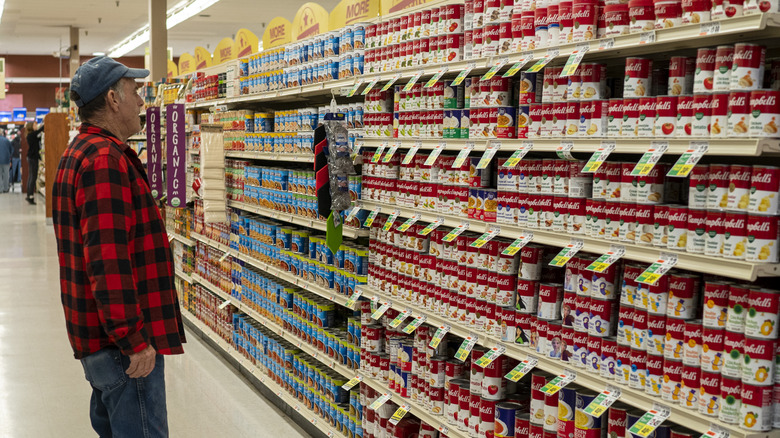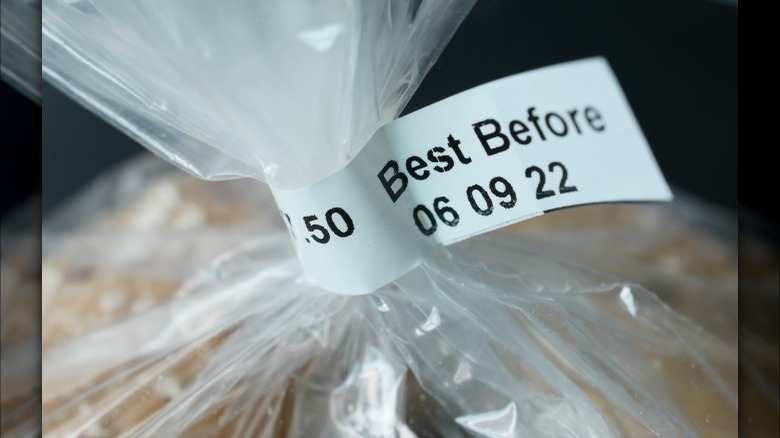6 Grocery Items To Stock Up When They're On Sale And 6 To Skip
Strategic grocery shopping during sales is not merely about seizing opportunities for savings; it's a calculated approach to nourishing both your family and your finances. In this era of rising food costs and fluctuating economic conditions, making informed choices during sales has become paramount.
When navigating the bustling aisles of supermarkets or scrolling through online grocery deals, it's essential to consider a multitude of factors. Beyond the tantalizing price tags, you should consider the shelf-life, quality, nutritional value, and overall cost-effectiveness. This discerning approach ensures that you not only capitalize on discounts but also secure groceries that align with your long-term needs and culinary aspirations, as well as cut down on wasting food and money.
We aim to help you shop smarter when those deals hit the shelves. Join us in this comprehensive review of which sales items are worth stocking up on and which to skip.
Buy: Canned vegetables
Canned goods are the unsung heroes of strategic grocery shopping during sales. Although unassuming, they deserve your attention, not just for their affordability during sales but for the myriad benefits they offer. When you stock up on canned goods, you're not just filling your shelves; you're investing in taste longevity. These canned treasures maintain their flavor and quality for extended periods, ensuring each bite bursts with the same deliciousness as the day it was canned. This means that even when you purchase them on sale to stock your pantry for the long-term, you won't be compromising on taste.
Shelf life is a significant advantage of canned goods. High-acid canned foods, like tomatoes and citrus fruits, can maintain their quality for up to 18 months or more. Low-acid canned goods, including vegetables and legumes, can last for two to five years or even longer. So, when you spot these versatile products on sale, consider filling your cart, as they're not just a wise purchase for the present but also an investment in future culinary adventures.
Moreover, canned goods often retain their nutritional value effectively. Whether it's the vitamins in vegetables or the protein in canned meats, these nutrients are sealed in, ensuring that you receive essential dietary elements in your meals even months down the line.
Skip: Fresh meats and seafood
When it comes to strategic grocery shopping during sales, one category that often perplexes shoppers is fresh meats and seafood. While the allure of succulent cuts and ocean-fresh catches is undeniable, there are compelling reasons to think twice about these purchases during sales.
First and foremost, let's discuss the elephant in the room: the short shelf life of fresh meats and seafood. No matter how diligently you adhere to preservation methods like refrigeration or freezing, the clock starts ticking from the moment of purchase. This limited window for consumption means that bulk buying fresh meats and seafood during sales may not be as practical as it initially seems. These items must be continuously frozen or refrigerated, and the already short period for safe or quality consumption adds further complications.
Additionally, while freezing can extend the lifespan of meat and seafood, it's not a foolproof solution. It requires precise storage methods and ample storage space, which isn't always readily available. This consideration often becomes a stumbling block for those hoping to stock up on discounted cuts during sales.
Furthermore, the issue of food waste cannot be ignored when it comes to perishable items like fresh meats and seafood. Despite your best efforts to preserve them in the freezer, a significant portion of these items often ends up in the trash due to expiration confusion or quality decay. This not only impacts your budget but also contributes to the broader problem of food waste.
Buy: Rices, grains, and pasta
When it comes to strategic grocery shopping during sales, pantry staples like rice, grains, pasta, and noodles emerge as undeniable champions of savings and versatility. These items offer not only economic advantages but also lasting taste and nutritional value.
Firstly, let's consider the taste factor. These pantry staples maintain their taste when bought in bulk during sales and stored for longer periods. Whether it's the comforting warmth of a pasta dish or the wholesome goodness of brown rice, these items consistently deliver on flavor.
Beyond taste, let's delve into the nutritional benefits. Rice, grains, pasta, and noodles are rich in carbohydrates, serving as valuable sources of energy. This makes them essential components of a balanced diet, providing the fuel your body needs for daily activities.
Moreover, the extended shelf life of these staples is a notable advantage. When stored correctly in a cool, dry place, rice, grains, and pasta can maintain their quality for extended periods, making them foods to stock up on during sales.
Skip: Dairy products
Dairy products, although a dietary staple for many, come with their own set of considerations during sales. Record-high production costs and inflation have resulted in some of the highest dairy prices ever, impacting consumers' budgets. However, just because milk or cheese is on sale doesn't mean it's a good idea to stock up.
The most important thing to consider when buying dairy during sales is the shelf life. Even a short amount of time outside of the refrigerator can reduce the shelf life, risking extra waste. A 2022 study in Current Research in Food Science revealed that it is actually difficult to determine actual shelf life, as the growth of bacteria that spoil milk is unpredictable, resulting in most dairy products being thrown out when they reach their already short shelf life. Buying dairy products in bulk simply does not leave a reasonable amount of time to consume them all before they have expired.
Buy: Spices
When it comes to strategic grocery shopping during sales, spices emerge as an indispensable choice. These kitchen essentials are known for their remarkable flavor-enhancing prowess and can transform mundane meals into memorable feasts. Spices also offer many health benefits, making them excellent ingredients to add to both dishes and sauces. Cost-conscious shoppers will find stocking up on spices to be a savvy financial move as their incredible shelf-life and quality retention mean they'll never go to waste. It's a budget-friendly strategy that allows you to enjoy a rich tapestry of flavors without breaking the bank.
One of the most alluring aspects of spices and condiments is their impressive shelf life, but storage is key. When stored correctly in a cool, dark place, these flavor enhancers maintain their potency and aroma for several years. This means that your investment in spices will continue to pay dividends, remaining useful for an extended period.
Skip: Bread and bakery items
In the art of savvy grocery shopping during sales, one category warrants a cautious approach: baked goods. Freshness takes center stage when it comes to these products and their texture and taste notably decline with the passage of time. Not only will they become stale and hard, but they'll also lose flavor and aroma. To savor the true essence of these delectable treats, and avoid food waste, it's best to indulge in these creations when they are fresh.
But it's not just about taste and shelf life; there are nutritional considerations too. While bread and bakery items delight the taste buds, they often pack a hefty carbohydrate punch. An overindulgence in carbs can raise health concerns, as can eating expired bread that may contain mold.
And consider this: A startling statistic from the U.S. Environmental Protection Agency in 2018 via the U.S. Department of Agriculture revealed that over 21% of waste was attributed to food. A substantial portion of this waste stemmed from bread, rolls, and other baked goods. This wasteful trend not only has environmental implications but also takes a toll on your wallet.
Buy: Long-lasting produce
When it comes to shopping for produce during sales, certain long-lasting fruits and vegetables are the only smart choices when stocking up. Carrots, sweet potatoes, onions, and apples maintain their taste and quality for extended periods. Their flavors are consistent and reliable. With their extended shelf life, you won't need to worry about spoilage or waste. By storing them correctly in a temperature-controlled environment, items like carrots and onions will have a month or more of shelf life.
These items, while durable, are packed with essential vitamins, minerals, and dietary fiber. They also contain high levels of antioxidants and vitamin C, boosting your immune system. These types of sustainable produce provide nutritional benefits that make them an excellent addition to your diet while maintaining their shelf life and quality. And since they last a while, stocking up when they're on sale is a good buy.
Skip: Highly-perishable produce
Highly perishable produce items are tempting during sales, but they come with considerations that may outweigh the potential savings. Taste is a critical factor; the quality of highly perishable produce relies heavily on freshness. Once these items start to deteriorate, their taste and texture can decline rapidly.
The shelf life of highly perishable produce is notably short, which can pose challenges when purchasing in bulk during sales. Research suggests that storage losses are higher for certain highly perishable items like lettuce, berries, bananas, and tomatoes. Proper storage conditions are paramount to extend their usability, such as proper temperature and moisture control.
The World Wildlife Fund estimates that up to 45% of fruits and vegetables produced each year are actually wasted. A large portion of this can be attributed to spoilage, therefore it's best not to purchase certain fruits and vegetables in bulk just because they're on sale.
Buy: Frozen vegetables
In the realm of strategic grocery shopping during sales, frozen vegetables emerge as a star player. Beyond their affordability, frozen vegetables defy the misconception that they lack nutritional punch. The research underscores their ability to retain essential vitamins and minerals even after freezing. A study in the Journal of Food Composition and Analysis declares that frozen vegetables can retain even more nutrients than fresh produce, as they are frozen and sealed at their peak. When you reach for those frozen peas or broccoli florets during a sale, you're still getting a nutritious bang for your buck without sacrificing nutrition.
Unlike their fresh counterparts, frozen vegetables aren't in a race against time. Properly stored, frozen vegetables can last up to 8 to 10 months in the freezer, providing a consumer-friendly shelf life.
Moreover, frozen vegetables are champions of convenience. They're pre-cut and ready to go, saving you precious minutes in meal preparation. Whether you're crafting a stir-fry, whipping up a quick soup, or simply looking to bolster your plate with greens, frozen vegetables offer unmatched ease.
Skip: Specialty items
While the allure of buying specialty items when they're on sale is undeniable, it's crucial to approach them with careful consideration. One significant reason to exercise caution is the price — even when they're on sale. Specialty items are associated with gourmet and artisanal products that typically come in the form of already prepared meals by a grocery store itself or high-end brands. However, even when these items are on sale, their cost may remain relatively high compared to everyday grocery items, particularly when buying specialty items in larger quantities.
In addition to cost, health and nutrition are other pitfalls to consider with these items. Pre-packaged "fresh" meals sold at most major grocery stores are not always fresh and usually contain processed or reheated foods, even if they are actually prepared at the store. Also, due to costs, some grocery stores outsource the production of these meals to centralized kitchens, which are then shipped en mass to stores and displayed cold or reheated. Don't let the appearance and packaging fool you — the cost of their convenience is freshness, quality ingredients, or both.
Moreover, specialty items frequently have a limited shelf life, which can pose challenges when purchasing them in bulk during sales. Many of these unique and delicately crafted foods are best enjoyed when fresh. Pastries, cheese trays, pre-cooked meals, and other specialty goods are known for their quality, which may draw you in during a sale, however, deterioration in quality quickly occurs after their production date.
Buy: Canned soups and broths
Canned soups and broths deserve a place in your shopping cart during sales for various reasons. Firstly, these products have an extended shelf life, allowing you to store them for future use while avoiding waste. Canned broths can last up to a year unopened, and canned soups can last from 1 to 2 years.
Also, according to UC Davis's Center for Nutrition in Schools, because food is harvested and canned at its highest nutrient levels, canned soups maintain their health benefits and taste. Therefore, no matter how long these may sit in your pantry, they will always be a fresh, tasty, and nutritious option.
Convenience is an additional benefit. Canned soups and broths offer quick and easy meal solutions, especially on busy days when you don't have time to prepare elaborate dishes. They also serve as a versatile base for various recipes, from hearty stews to savory sauces.
Skip: Items nearing their expiration date
Items nearing their expiration dates can be tempting to buy when they're on sale, but it's essential to weigh the pros and cons. One crucial factor is taste, as the quality and flavor can deteriorate as items approach their expiration dates. The concept of best-before dates is about quality and safety, and although food items past their best-before dates may still be safe to eat, they might not deliver the optimal taste and texture you expect.
Cost is another consideration. While these items may be available at discounted prices during sales, buying in bulk might lead to over-purchasing and, ultimately, wastage. If you're not going to immediately eat these items in the short window before they expire, it's best to avoid buying them in excess during sales.
The last thing to consider is the dangers posed to your health by eating expired or nearly expired food. According to a recent NSF survey, 27% of Americans consume expired food products, which can lead to detrimental health issues in the form of food-related diseases such as E. Coli, Salmonella, and Listeria.
Therefore, when considering items nearing their expiration dates during sales, it's essential to balance potential cost savings against the risk of compromising taste, contributing to food waste, and potential illnesses.

